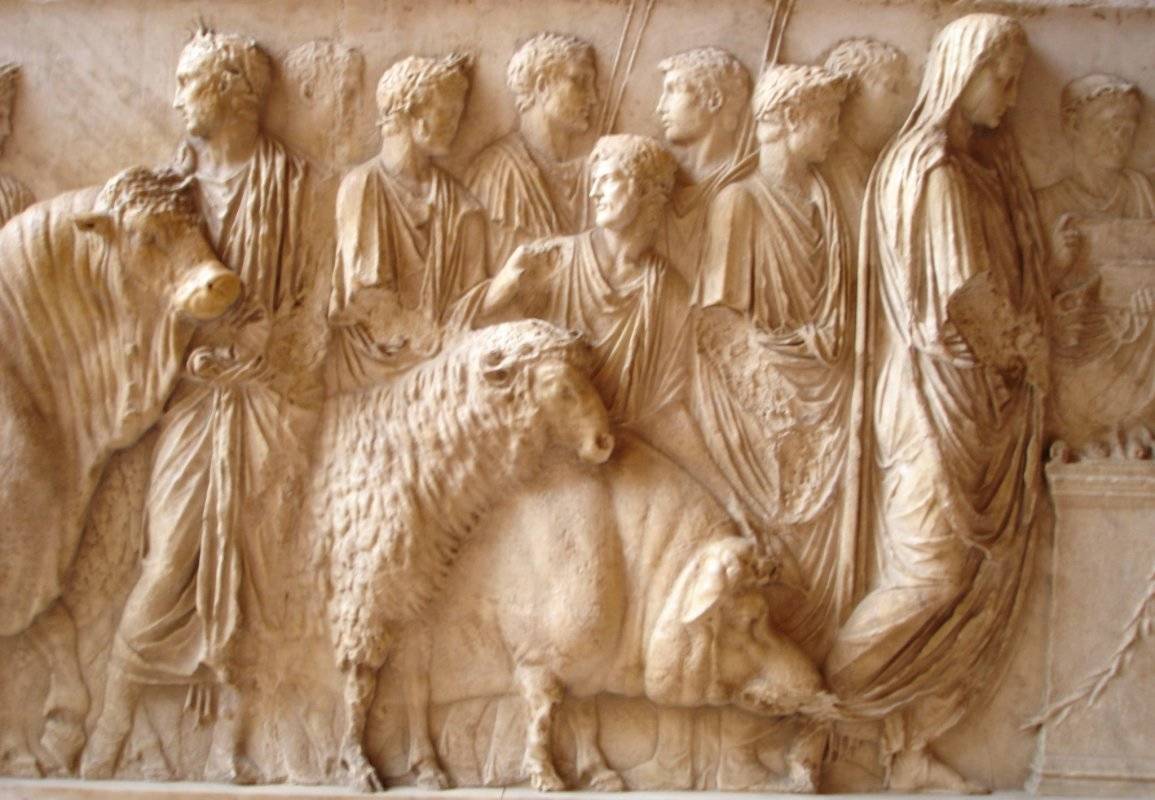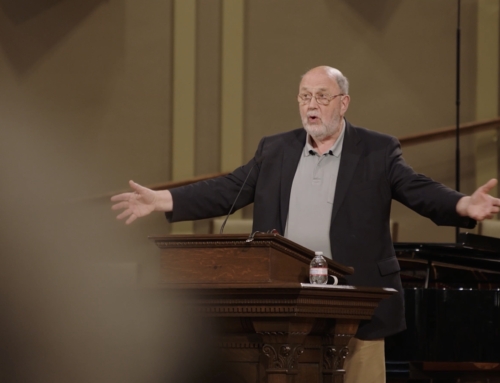Augustus Caesar, some decades back, had promised the good news of a new era, one of peace and salvation, different from any of the dark past Rome had experienced. The power of Rome was at a high point and the Empire had a way of securing peace through killing off any would-be rebels and defining ‘justice’ in such a way as to suit the Roman way of life.
The way of life in the Roman Empire was very brutal. Most people barely made a sustainable living and illness and death were never far away from people’s minds.
The Problem in Romans
In the Epistle to the Romans, Paul argues that idolatry is the core problem of humankind. People worship and serve things created (including themselves) rather than the Creator God. This leads to a dehumanized life. The more idolatry forms the basis of a culture, the more destructive the world becomes and the more entrenched the ‘principalities and powers’ become.
Paul has a marvelous argument in chapters 1-11. God in Christ deals with:
- the problem of idolatry
- the need for forgiveness from sin
- dethroning the reign of sin
- how to walk in freedom by the Spirit.
Paul focuses his emphasis, though, not on the problems but on God’s covenant faithfulness. In so doing, he grounds the hopes of humanity, whether Jew or Gentile, on who God is.
Paul grounds the hopes of humanity, whether Jew or Gentile, on who God is. Click To Tweet
Life in the Kingdom
Although Paul deals with the ‘theological problem’ of sin and death in his argument, there is still the need to reestablish the life-giving rule of the King. God restores the vocation of humanity. In other words, the image-bearing people of God are now established as the people who bring in the King’s rule. Many have wondered why the apostle Paul, in Romans 8:30, uses past tense verbs. This implies that these actions have already taken place:
And those he marked out in advance, he also called; those he called, he also justified; those he justified, he also glorified.
Prof. Wright explains this in his commentary, Paul for Everyone: Romans, Part One:
The last verse sets out the simple but profound steps by which God goes to work to call out those who, in his purpose, are now to share the image of his son, to be among those summoned to advance his work in the world. Those who were marked out for this task in the first place have been, mysteriously, ‘called’; Paul uses ‘call’ as a technical term for what happens when the preaching of the gospel works powerfully in someone’s life to bring them to faith, to urge them to baptism, and to flood their hearts with love for God by the spirit. When the gospel produces faith in this way, as we have seen, God declares the person to be indeed a true member of the family: the word for that is ‘justification’. And the purpose of it all, a purpose which is every bit as secure as those that have gone before, so much so that like the others it can be spoken of in the past tense, is that they may be ‘glorified’, sharing the Messiah’s sovereign, redeeming rule over the whole creation.
God declares the person to be a member of the family: the word for that is ‘justification’. Click To Tweet
How to Rule with Jesus
This brings me back to my class and the commands given in Romans 12-13, in particular. Paul presents four ways we exercise the ‘shared’ sovereign rule of the Messiah:
- First of all, we worship by dedicating our whole selves to God. This reverses idolatry.
- Second, we commit to the renewing of the mind. This limits our tendency to ‘suppress the truth in unrighteousness’ (Romans 1:18).
- Third, Paul indicates that, as the new covenant people of God, we live intertwined with one another through the gifts God has given us. This reverses the problem of Babel where the fracturing of society becomes outwardly prominent.
- Fourth, in Romans 12:9-16, we, the people of God, show the world how to live in the new way of the family of God, without the usual dysfunction. This leads to a peaceful and healing manner of life towards those who may be hostile to the Way of the King.
In Jewish life, the first aspect of the law of God concerns how we love Him. That is covered by Romans 12:1-2:
So, my dear family, this is my appeal to you by the mercies of God: offer your bodies as a living sacrifice, holy and pleasing to God. This is your true and appropriate worship. What’s more, don’t let yourselves be squeezed into the shape dictated by the present age. Instead, be transformed by the renewing of your minds, so that you can work out what God’s will is, what is good, acceptable and complete.
The second aspect of the law of God concerns how we love others. Paul not only goes into detail about this, as explained in the specific command about interpersonal relationships. Paul summarizes commands concerning others in Romans 13:9-10:
Commandments like ‘don’t commit adultery, don’t kill, don’t steal, don’t covet’—and any other commandment—are summed up in this: ‘Love your neighbour as yourself.’ Love does no wrong to its neighbor; so love is the fulfilment of the law.
New Creation in Action
Professor Wright often discusses the theme of ‘New Creation’.
Being glorified is seldom regarded by believers as a present reality. But Paul insists not only that it is the case, but expects God’s image bearers to live out this new reality.
Of course, in contrast to a world focused on power and image, we operate with weakness and suffering for the sake of others. It is being Jesus for the world, acting in ways consistent with his own manner of life and with His authority exercised in humility and gentleness. In so doing, the powers of this age are robbed of their influence among the in-Messiah family.
This is New Creation in action.
David P. Seemuth, PhD
Latest posts by David P. Seemuth, PhD (see all)
- Advent Reflections from the N.T. Wright Online Team - December 5, 2022
- YouTube as Public Reading of Scripture - August 29, 2022
- What I Learned From A Week With Professor Wright - June 16, 2022








Love every single word NT Wright is teaching just now and can’t get enough of it. Feeling so stirred and challenged and refreshed by this hope-filled teaching and challenge to consider what it means to live as new creations and as a kingdom of priests. Thank you for offering so much great teaching and lectures for free. Listening to “The Day the Revolution Began” on audible as I commute to and from work and loving every part of it. I’m so hungry for more of this to fully grasp the revelation of the reality of the significance of the Cross and resurrection and its implications for our vocation to be His image bearers. The very best quality teaching I’ve ever come across. Amazed 🙂
This is excellent work, David. This is very helpful. I can use this as a framework for thinking through application questions as I read through the NT. However could you further clarify your understanding of glorification. How do you define it, theologically? Yes, it is a present reality. But is it isn’t “perfected” yet, is it?
(Please bear with the way I frame my statements. As a Filipino, English is a second language to me. And I am not quite good at it. Thanks)
The statement, “God restores the vocation of humanity” is so powerful. Oh that we would all reckon with ourselves that that is our first calling. Brought back into the family of God, we then say with confidence “we reign with him”.
True, Paul was dealing with the issue of Idolatry and it is very relevant for today. Especially in the United States. And who are those justified today? The catholic,the anglican, the baptist, the presbyterians, the orthodox, the pentacostal. All image-bearers of God. God bless.